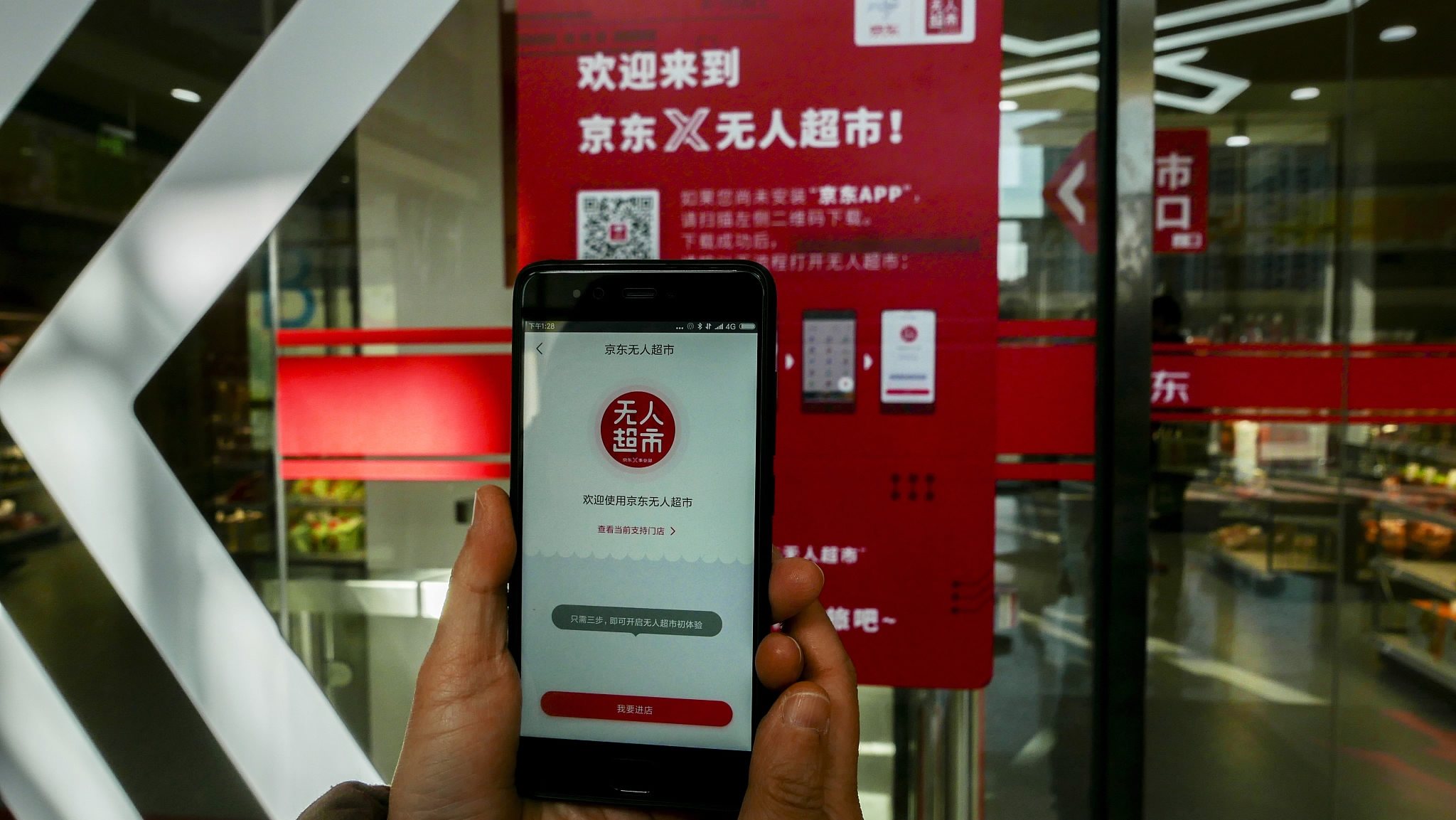
Business
22:44, 11-Feb-2018
Chinese tech giants blur line between online and physical retail
By CGTN's Henry Zheng

E-commerce behemoth Alibaba Group Holding Ltd. announced on Sunday its latest move toward integrating online and physical retail through its purchase of a stake in a leading Chinese home improvement chain.
The company said that it will invest 5.45 billion yuan (865 million US dollars) in Beijing Easyhome Furnishing Chain Store Group Co. Ltd to acquire a 15-percent stake. The home improvement retailer currently operates 223 stores in China, and is expected to undergo a digital transformation with the money.
But unlike many brick-and-mortar stores that have closed or lost business due to online retail, Easyhome is not exactly in the red, as it posted sales of over 60 billion yuan in 2017.
Online shopping in China
In recent years, online shopping has steadily cut into the lucrative pie of the Chinese retail market.
In 2017, official statistics show that online retail sales of physical goods in the country increased 28 percent, accounting for about 15 percent of total retail sales of consumer goods. Rural online shopping in China has grown even faster than in urban areas last year, according to the China International Electronic Commerce Center via Xinhua.
This robust trend is especially pronounced in China, where online sales approached 1 trillion US dollars last year, making it the largest e-commerce market in the world, according to China Daily citing S&P Global Ratings. Online retail sales have grown tremendously in recent years, thanks to creative advertising campaigns such as the annual Singles’ Day, akin to Cyber Monday in the US, when a range of products on e-commerce websites are heavily discounted for those who are alone or – thankfully – in relationships alike.
It’s a new retail world
However, physical retail is far from being in its death throes.
Tech giants see opportunity in combining online with the brick-and-mortar experience, as some have led the way into the burgeoning world of “New Retail,” a concept coined by Alibaba’s founder Jack Ma in a 2016 statement to shareholders.
The operating principle behind “New Retail” seems to be that aside from buying stakes in already established retail stores, Chinese tech companies are leveraging their trove of data on consumer behavior to streamline the shopping experience in the front and the supply chain in the back. This has manifested most visibly in cashier-less grocery stores such as e-commerce giant JD’s 4,000-square-meter supermarket in Beijing called 7FRESH, which uses facial recognition for self-checkouts and smart shopping carts that follow customers around.

Scanning a QR code with a smartphone to enter an automated JD store /VCG Photo
Scanning a QR code with a smartphone to enter an automated JD store /VCG Photo
More pervasive are the automated convenience stores popping up in many Chinese cities, such as BingoBox, which received 80 million US dollars in a recent funding round. While its US counterpart Amazon Go eliminates the checkout altogether by using AI to match a customer’s face with items in his bag, such stores still require customers to scan their items and then pay using WeChat. Even as they lag behind their competitors in tech, many of these Chinese startups have managed to thrive in a nation that runs on convenient services.
Even the traditional retail giant Wal-Mart has teamed up with established Chinese tech companies Tencent and JD. In a strategy that seems to penetrate every aspect of a Chinese consumer’s life, JD will use data from the nearly one billion monthly active users on the popular messaging app WeChat, owned by Tencent, to make online shopping recommendations, while JD and Wal-Mart will combine their membership systems so that customers can get discounts from both retailers.
Tech companies are revitalizing certain major physical retailers by investing in and integrating them with their online businesses. If current trends continue, the distinction between online and offline retail could eventually fade. However, small brick-and-mortar stores seeing their businesses being overtaken by e-commerce may need their own lifeline.

SITEMAP
Copyright © 2018 CGTN. Beijing ICP prepared NO.16065310-3
Copyright © 2018 CGTN. Beijing ICP prepared NO.16065310-3